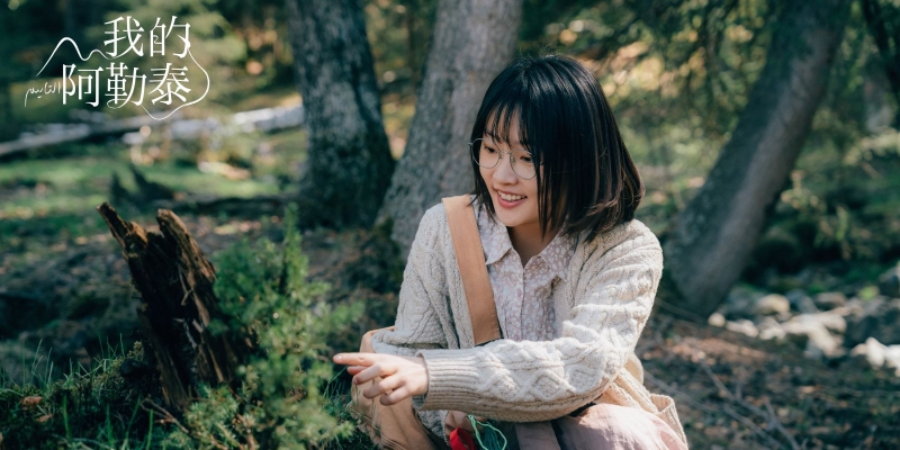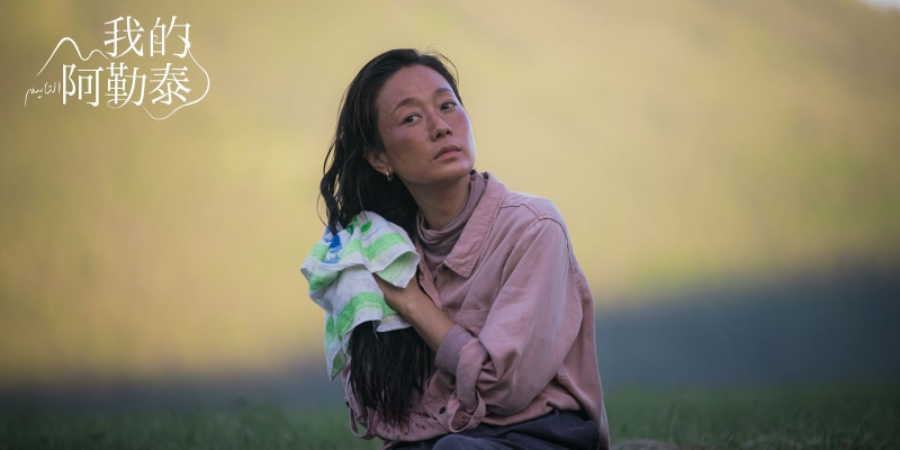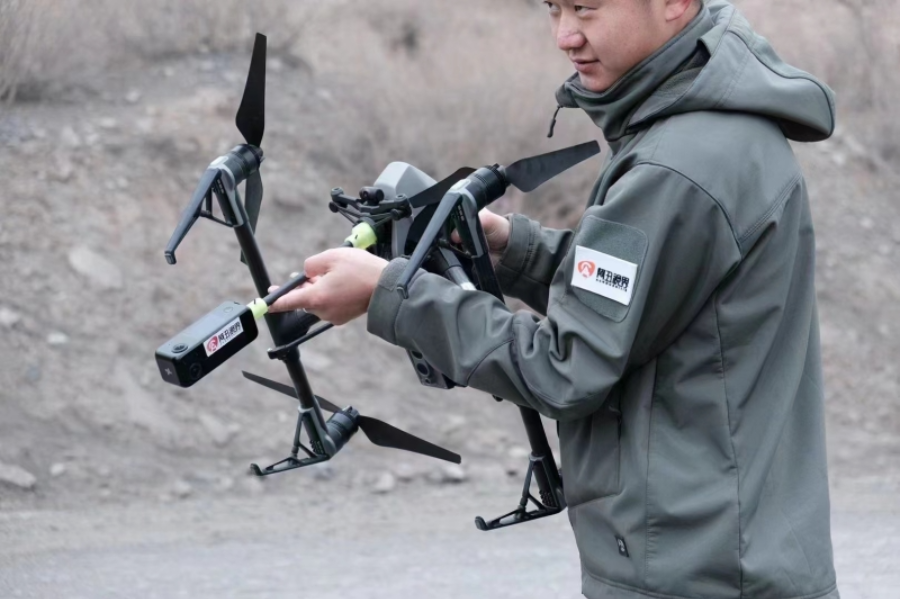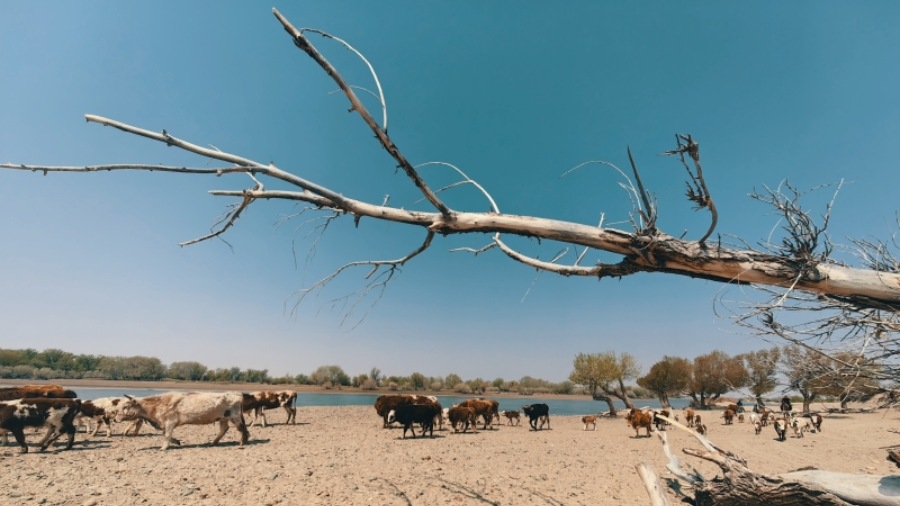Shiliuyun-Xinjiang Daily (Reporter Liu Mengmeng) news: In the distant Altay Mountains, Li Juan and her mother once earned a living by tailoring and selling small commodities.
There is no internet and no social interaction. When they lift the curtain of their felt house, what lies before them is the boundless grassland and the endless passage of time with long days and short nights.
Li Juan and her words are deeply rooted here. The nominated mini-series, To the Wonder, adapted from the essay collection My Altay by Xinjiang writer Li Juan, also unfolds in this place.
On the evening of May 7, 2024, the miniseries premiered on the CCTV Comprehensive Channel and the iQIYI platform. Before its broadcast, the reporter repeatedly interviewed the creative team to explore their interpretations of the story.
Filming To the Wonder: A Commercial Adventure
Qi Kang, the general manager of iQIYI Canran Studio and the overall producer of To the Wonder, said, "Filming To the Wonder was a commercial adventure. Fortunately, we persisted and the results are quite good."
In his view, To the Wonder differs somewhat from the typical television series that viewers are accustomed to. Mini-series ranging from six to eight episodes, with their high artistic quality and strong stylistic features, imply that adaptation challenges and commercial risks are dual threats. "Many people asked me why I am willing to take such a risk. In fact, this work contains many widely recognized viewpoints and emotionally resonant content that can evoke people's empathy. The English title of the series is “To The Wonder,” it expresses people's pursuit of idealism and their longing for the unknown world, and portrays personal experiences and feelings that people have at different stages of their growth.

Photo shows a poster of To the Wonder. (Photo provided by the crew of To the Wonder)
In the book My Altay, Li Juan describes a three-way junction teeming with shops and eateries, where outside a motorcycle dealership hangs an advertising painting of Andy Lau, which a cow is licking on his face. To recreate this scene for the series, the production team invested considerable time negotiating portrait authorization with Andy Lau, even though his image is only briefly featured. This showcased the team's dedication to perfection and their commitment to producing an art piece of high quality.
This concept was the same as Teng Congcong, the director and screenwriter, who said, "The initial intention to film the miniseries was because I believe that on the vast land of China, there are all kinds of stories happening, and there are many wonderful themes to explore. This is the responsibility and commitment that creators should have. If we continue to tell the same old stories, it would actually be quite boring. All along, I have hoped to lead the audience to find new perspectives in viewing the world."
Upon reading the works of Li Juan, Teng was immediately impressed. "Li Juan is a very unique creator with her distinctive viewpoint and values towards the world, as well as her perceptiveness of life," said Teng. Her works reveal the "texture and tactile quality of life" with a unique sense of humor.
Next, it was time to visit Altay to explore the stories depicted by Li Juan. "I went to Altay twice for field research. My Altay was written around 2000, while my research trips were in 2020. The information age and the era of civilization have changed the younger generation of herders, and this collision and integration fascinated me." During her time in Altay, Teng immersed herself in having in-depth communication with the local people and integrating into them. "I found the locals to be incredibly hospitable; knowing one person often led to meeting many others. They move with the seasons across the vast landscape, embodying a simple yet resilient spirit." It was at that moment that Teng found her direction.
A dreamlike journey in Altay
After returning from their field research trip, Teng and another screenwriter, Peng Yining, focused on the stories of Zhang Fengxia, Li Wenxiu, and the Batai family.
They selected the mother-daughter protagonists from the original work, sorted out the main plot clues around them, built supporting relationships, and carried out related creative work, such as creating scripts, clarifying the main storyline, and designing conflicts. Teng said, "Zhang Fengxia is bold and free-spirited, Li Wenxiu is naive and adorable, and Batai is youthful and sunny. In the process of crafting, all other techniques and constructions, whether it's the development of character relationships, the streamlining of the main story arc, or the establishment of conflicts, pale in comparison to the original work."
Teng stated that My Altay does not depict nomadic life as a simple pastoral idyll; arduous and heavy labor is part of the daily routine, as well as a source of pleasure in life. It's a profound ode to life and a tribute to its reverence. "The vivid characters in the story are not perfect, yet they profoundly embody the serene composure of the herders' life. Despite facing a life of constant migration, they radiate a unique warmth, richness, and joy."
On social media platforms, the comment most frequently associated with Li Juan's work is: "It alleviated my spiritual exhaustion." During the filming of To the Wonder, its therapeutic effect touched the inner world of the actors.

Photo shows a poster of To the Wonder. (Photo provided by the crew of To the Wonder)
Ma Yili, the actress who portrayed the character of the mother, Zhang Fengxia, recalled that her time in Altay over two months felt like a beautiful dream. "No equipment could capture the beauty there because it's intertwined with the air, breath, humidity, and the local grass, cows, sheep, horses, and people."
Before joining the cast, Yu Shi, who plays the Kazak youth Batai, made a point of reading Li Juan's works closely. He found them to be bright and refreshing, painting an enchanting image of Altay that captivated his imagination. After arriving in Xinjiang, the Altay he had envisioned gradually took on a clear shape in his mind.
During his stay in Altay, Yu Shi would ride horses and herd sheep when he was not on filming, and became one with the local people. He helped an elderly herdsman herd the sheep and was even invited to their home as a guest. "In conversations with the grandparents, I realized that despite the harsh living conditions, this does not hinder the herders' confidence in their life experiences. When it was time to leave, grandma stuffed my pockets full of milk chunks, saying, 'my dear, take here as your own home. When you are tired from filming and pass by, come to drink tea and I will make delicious food for you.'" Yu Shi shared that these words struck a chord with him. He felt as if emotions had bridged the gap of language barriers, and he truly became a local at heart.
With a pair of glasses perched on her delicate face, the young actress Zhou Yiran, who portrays Li Wenxiu, bears a distant resemblance to the author Li Juan. During the filming in Altay, she immersed herself in the world described by the writer, experiencing the landscapes and local customs depicted in the text. "Li Wenxiu has a dream of becoming a writer. She works in the city but faces constant rejection. Returning to her hometown of Altay, she looks at this land with a unique perspective, which allows her to see the world from different angles. Living in Altay, she gradually heals herself and profoundly heals me as well."
Traveling through various places to showcase the charm of Xinjiang
Those scenes, where snow-capped mountains soar into the clouds, dense forests flourish, flocks of sheep roam, and herds of horses dash freely... Through the lens, a series of magnificent aerial shots of Xinjiang unfold slowly before the eyes of viewers, compelling them to capture these images as wallpapers.

Photo shows Zhang Zehuan films on set. (Photo courtesy of Zhang Zehuan)
The aerial shots in the series were provided by Xinjiang Achou Vision Culture Media Co., Ltd. Aerial photographer Zhang Zehuan explained that to showcase the rich and diverse natural and cultural landscapes of various places in Xinjiang, as well as the vibrant spirit of modern life, the production team traveled to places including Urumqi City, Habahe County, and Burqin County for filming. "After each filming, we couldn't help but marvel at how the vast expanse of Xinjiang is a perfect canvas for aerial photography, where glaciers and snowy mountains coexist with the vast Gobi and desert."
In the eyes of Liu Yizeng, the director of photography, Xinjiang's beauty is both direct and intense. Sunshowers and sunsnow are common occurrences. When wrapping up the shoot, hail began to fall, and the entire filming crew and convoy got stuck in the grasslands.

Aerial photo shows herds of sheep and cows. (Photo courtesy of Zhang Zehuan)
In order to present the natural scenery and true appearance of Altay in a realistic way, the crew used 4K ultra-high-definition filming, HDR (high dynamic range imaging) monitoring for controlling exposure and color, and Dolby panoramic sound design, making it the first mini-series in the industry to achieve a complete "native HDR" production process. "There are many beautiful sceneries in Xinjiang that cannot be fully captured by the camera, but with 4K resolution, we can restore the reality to the maximum extent, capturing the subtle emotions in the actors' tearful eyes, as well as the differences in brightness and darkness in the images," said Liu Yizeng.
Composer Gao Xiaoyang, a native of Xinjiang, contributed the beautifully melodious and richly diverse musical elements in To the Wonder as a gift to his homeland. "For instance, the music used in the second episode employs chronological differentiation; the first half of the theme is a typical film score melody that gives listeners a warm and resolute feeling, while the latter half features the unique cyclical tunes of the Kazak people, representing an attempt to integrate ethnic musical elements into the visual experience."
Despite a captivating opening, Teng Congcong expressed that the subsequent content is even more worth anticipating. "Starting from the fourth episode, there will be scenes involving pastures transfer, grand singing gatherings on the ranches, and so on, vividly showcasing the rich and profound living landscape of the herders in Xinjiang."
(A written permission shall be obtained for reprinting, excerpting, copying and mirroring of the contents published on this website. Unauthorized aforementioned act shall be deemed an infringement, of which the actor shall be held accountable under the law.)









